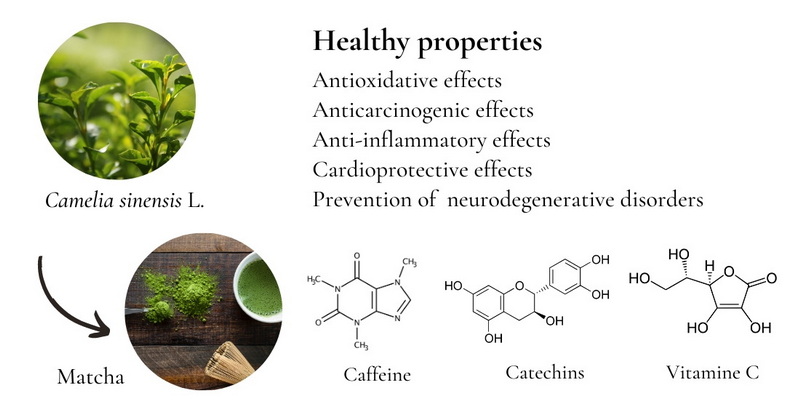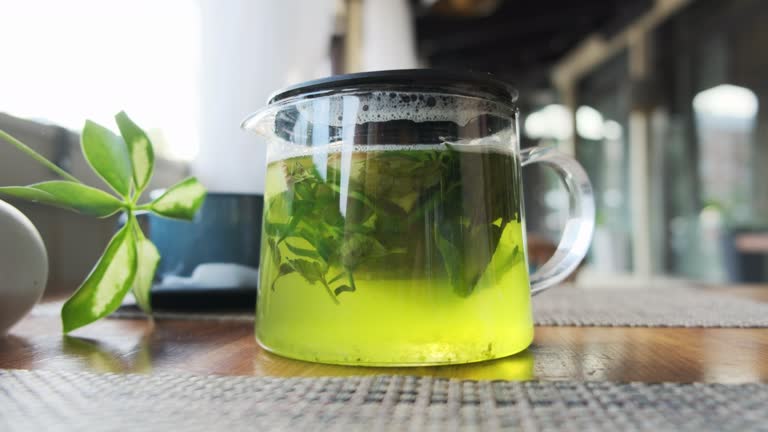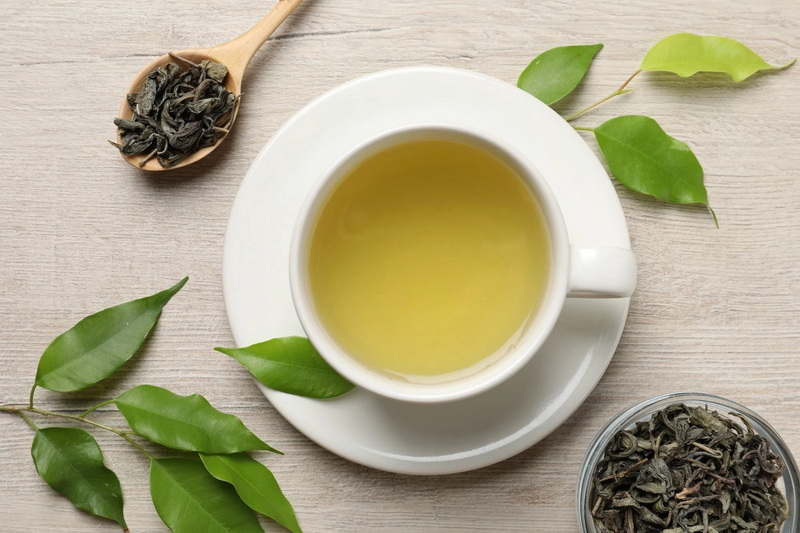Content Menu
● What is Green Tea Extract?
>> Key Components of Green Tea Extract:
● Is Caffeine in Green Tea Extract Natural?
>> Natural vs. Synthetic Caffeine:
● Caffeine Content in Green Tea Extract
>> Examples of Caffeine Content in Green Tea Extract Products:
● Benefits of Caffeine from Green Tea Extract
>> Enhanced Alertness and Cognitive Function:
>> Improved Physical Performance:
>> Antioxidant Properties:
>> Weight Management:
● Potential Side Effects and Precautions
>> Common Side Effects:
>> Precautions:
● How to Choose a Green Tea Extract Supplement
>> Third-Party Testing:
>> Caffeine Content:
>> EGCG Content:
>> Additional Ingredients:
>> Brand Reputation:
● Conclusion
● FAQ
>> 1. What is the difference between green tea and green tea extract?
>> 2. Can green tea extract help with weight loss?
>> 3. Is it safe to take green tea extract every day?
>> 4. What are the signs of liver problems from green tea extract?
>> 5. Does green tea extract interact with medications?
● Citations:
Green tea extract (GTE) has garnered significant attention in recent years due to its purported health benefits and natural energy-boosting properties[10]. Derived from the leaves of Camellia sinensis, the same plant that gives us green tea, black tea, and oolong tea, GTE is a concentrated form of the tea, offering a more potent dose of its active compounds[7]. One of the key components of green tea extract is caffeine, a stimulant known for its ability to enhance alertness and physical performance[1]. But is the caffeine in green tea extract natural? This article delves into the nature of caffeine in GTE, its benefits, potential side effects, and how it compares to other sources of caffeine.

What is Green Tea Extract?
Green tea extract is a concentrated form of green tea, produced from the dried leaves of the Camellia sinensis plant[10]. The extraction process isolates the most beneficial compounds, such as polyphenols, catechins, and caffeine[7]. These compounds are known for their antioxidant, anti-inflammatory, and thermogenic properties[5].
Key Components of Green Tea Extract:
-Polyphenols: These are micronutrients packed with antioxidants and potential health benefits[7].
-Catechins: A type of polyphenol, with epigallocatechin gallate (EGCG) being the most studied and potent[10].
-Caffeine: A natural stimulant found in tea leaves, contributing to alertness and energy[1].
Is Caffeine in Green Tea Extract Natural?
Yes, the caffeine found in green tea extract is natural[1]. It originates directly from the Camellia sinensis plant, unlike synthetic caffeine, which is manufactured through chemical processes[4]. This distinction is crucial for consumers seeking natural alternatives to boost their energy levels.
Natural vs. Synthetic Caffeine:
| Feature | Natural Caffeine (from Green Tea Extract) | Synthetic Caffeine |
| Source | Camellia sinensis plant[7] | Synthesized chemically[4] |
| Additional Compounds | Contains beneficial compounds like polyphenols and catechins[7]
| Pure caffeine without additional beneficial compounds |
| Flavor | Less bitter due to other compounds[4] | Can have a more bitter taste[4] |
| Common Uses | Dietary supplements, natural energy boosters[1] | Energy drinks, supplements, and pharmaceuticals[10] |
Caffeine Content in Green Tea Extract
The caffeine content in green tea extract can vary depending on the brand, extraction method, and concentration[2]. Generally, a cup of green tea contains about 30-40 mg of caffeine, while green tea extract supplements can contain anywhere from 25 mg to 600 mg of caffeine per serving[5].
Examples of Caffeine Content in Green Tea Extract Products:
-Nature's Truth Caffeine 200 mg Plus Green Tea Extract: 200 mg caffeine, 20 mg green tea extract[2]
-NOW Foods Green Tea Extract: Up to 32 mg caffeine per 400 mg of green tea extract[2]
-Life Extension Lightly Caffeinated Mega Green Tea Extract: 25 mg caffeine per 725 mg of green tea extract[2]
It's essential to check the product label to understand the exact amount of caffeine you are consuming[10].
Benefits of Caffeine from Green Tea Extract
The caffeine in green tea extract offers several potential benefits, often enhanced by the presence of other natural compounds in the extract[5].
Enhanced Alertness and Cognitive Function:
Caffeine is well-known for its ability to stimulate the central nervous system, reducing fatigue and increasing alertness[1]. Studies have shown that caffeine can improve cognitive functions such as memory, attention, and reaction time[9].
Improved Physical Performance:
Caffeine can enhance physical endurance and reduce perceived exertion, making workouts feel easier[1]. It stimulates the release of adrenaline, preparing the body for physical activity[1].
Antioxidant Properties:
Green tea extract is rich in catechins, particularly EGCG, which are powerful antioxidants[10]. These antioxidants help protect the body against oxidative stress and reduce the risk of chronic diseases[7].
Weight Management:
Some studies suggest that green tea extract may aid in weight loss by increasing thermogenesis and fat oxidation[5]. Caffeine and catechins work synergistically to boost metabolism and promote fat burning[5].

Potential Side Effects and Precautions
While green tea extract offers numerous benefits, it's important to be aware of potential side effects, primarily related to its caffeine content[10].
Common Side Effects:
-Anxiety and Nervousness: Excessive caffeine intake can lead to anxiety, nervousness, and irritability[10].
-Insomnia: Caffeine can interfere with sleep, especially when consumed close to bedtime[10].
-Digestive Issues: Some people may experience digestive problems such as nausea, stomach pain, or diarrhea[7].
-Heart Palpitations: High doses of caffeine can cause heart palpitations or irregular heartbeats[10].
-Liver Problems: In rare cases, high doses of green tea extract have been linked to liver damage[7].
Precautions:
-Moderation: Consume green tea extract in moderation, following the recommended dosage on the product label[9].
-Caffeine Sensitivity: Individuals sensitive to caffeine should start with a low dose and monitor their reaction[5].
-Medical Conditions: People with heart conditions, liver problems, or anxiety disorders should consult a healthcare professional before using green tea extract[5].
-Drug Interactions: Green tea extract may interact with certain medications. Consult your doctor if you are taking any prescription drugs[5].
How to Choose a Green Tea Extract Supplement
When selecting a green tea extract supplement, consider the following factors to ensure you are getting a high-quality and safe product[10].
Third-Party Testing:
Look for supplements that have been tested by a third-party organization such as USP, NSF International, or ConsumerLab.com. These certifications ensure that the product contains the ingredients listed on the label and is free from contaminants[10].
Caffeine Content:
Check the label for the amount of caffeine per serving. Choose a product with a caffeine level that aligns with your tolerance and desired effects[2].
EGCG Content:
Ensure the supplement contains a significant amount of EGCG, the most beneficial catechin in green tea extract[10]. A typical dose ranges from 100 to 300 mg of EGCG per serving[10].
Additional Ingredients:
Be wary of supplements with unnecessary additives, fillers, or artificial ingredients. Opt for products with minimal ingredients and a focus on green tea extract[1].
Brand Reputation:
Choose a reputable brand with positive reviews and a history of producing high-quality supplements[1].
Conclusion
In conclusion, the caffeine in green tea extract is indeed natural, derived directly from the Camellia sinensis plant[1]. It offers a range of benefits, including enhanced alertness, improved physical performance, and antioxidant properties[10]. However, it's essential to consume GTE in moderation and be aware of potential side effects associated with caffeine intake[5]. By choosing a high-quality supplement and following recommended guidelines, you can harness the natural energy-boosting power of green tea extract while minimizing potential risks[10].

FAQ
1. What is the difference between green tea and green tea extract?
Green tea is a beverage made by steeping the leaves of the Camellia sinensis plant in hot water[7]. Green tea extract is a concentrated form of green tea, containing a higher concentration of beneficial compounds like catechins and caffeine[10].
2. Can green tea extract help with weight loss?
Some studies suggest that green tea extract may aid in weight loss by increasing thermogenesis and fat oxidation[5]. However, the effect is modest and may vary depending on individual factors[5].
3. Is it safe to take green tea extract every day?
It is generally safe to take green tea extract daily in moderation[9]. However, it's important to follow the recommended dosage on the product label and be aware of potential side effects[10].
4. What are the signs of liver problems from green tea extract?
Signs of liver problems may include yellowing of the skin or eyes, nausea, stomach pain, and fatigue[7]. If you experience these symptoms, discontinue use and consult a healthcare professional[7].
5. Does green tea extract interact with medications?
Green tea extract may interact with certain medications, such as blood thinners and stimulants[5]. Consult your doctor if you are taking any prescription drugs before using green tea extract[5].
Citations:
[1] https://naturestruth.com/products/caffeine-200-mg-with-green-tea-extract
[2] https://www.livestrong.com/article/186702-how-much-caffeine-is-in-green-tea-extract/
[3] https://www.mindbodygreen.com/articles/13-common-misconceptions-about-caffeine-and-what-research-says-consumption
[4] https://appliedfoods.com/ingredients/purtea/
[5] https://www.healthline.com/nutrition/10-benefits-of-green-tea-extract
[6] https://www.mayoclinic.org/healthy-lifestyle/nutrition-and-healthy-eating/in-depth/caffeine/art-20049372
[7] https://www.urmc.rochester.edu/encyclopedia/content?contenttypeid=19&contentid=greenteaextract
[8] https://www.reddit.com/r/chemistry/comments/3gt1zo/how_much_caffeine_in_green_tea_extract/
[9] https://cafely.com/blogs/info/caffeine-in-tea
[10] https://health.clevelandclinic.org/green-tea-extract-a-better-way-to-boost-energy-or-not
[11] https://www.pfannenschmidt.de/Green-Tea-Extract-7-9-Caffeine-50Polyphenols






























